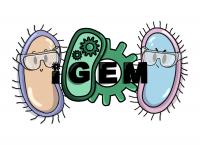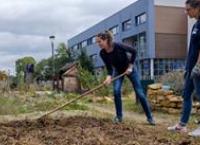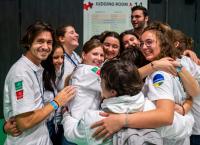Program
The curriculum covers all scales of living systems, from the molecule to the ecosystem, including human physiology. It combines numerical, experimental and industrial skills in proportions chosen by the student, who builds his or her pathway by complementing the compulsory modules with elective modules according to the targeted professional profile:
- bioprocess engineer for healthcare,
- bioprocess engineer for the environment,
- biological engineering and digital tools for health,
- biological engineering and digital tools for the environment,
- research engineer in toxicology and ecotoxicology,
- biomodeler for human health and ecosystems,
- data scientist for human health and ecosystems.
Prerequisites
Bac+2 or Bac+3 level education, including chemistry, mathematics and computer science. In life sciences: secondary school curriculum up to and including grade 1.
Learning objectives
Student engineers learn to quantify, structurally characterize and purify biomolecules, implement cell and microorganism cultures, design and implement experimental and digital tools for molecular and environmental diagnostics, and develop and validate bioprocesses.
They also learn to make judicious use of the tools of data science, biostatistics, artificial intelligence, bioinformatics, mathematical modeling and simulation of biological systems, to automate the processing of biological data, and use them to understand and predict the dynamics of a biological system and its perturbations in a clinical or ecological context.
They are trained to plan, size and manage a project in terms of tasks, deadlines, costs, resources, risks and hazards. They also learn to analyze the societal, economic, ethical and environmental stakes of their projects, and to translate into specific actions their place as biotechnology engineers in the company and in society.
Teaching methods
The teaching team is multi-disciplinary, comprising teacher-researchers and researchers from 10 different laboratories, as well as professionals from the health, biotechnology and environmental sectors.
50% of the curriculum is made up of practical work and projects, both experimental and digital, which are increasingly authentic over the course of 3 years, with projects proposed by research laboratories and our industrial partners in the final year.
Student-engineers build their career path by complementing the compulsory modules with elective modules, depending on the professional profile(s) they wish to target. Specific teaching sequences are dedicated to the development of this professional project.
Industrial internships
■ At the end of 3rd year: optional internship.■ At the end of 4th year: compulsory 3-month work placement in industry or a research laboratory.■ Possibility of one or two optional internships during a gap year between the fourth and fifth years.■ Second semester of year 5: compulsory 6-month internship in industry or a research laboratory.
Apprenticeship
■ The 5th year can be completed under a "contrat de professionnalisation" (apprenticeship).




